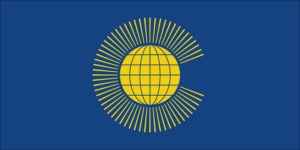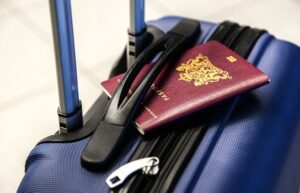Can Commonwealth Citizens with the Right of Abode Naturalise as a British citizen?
To answer this question, we need to clarify the following three points:
- Who is a Commonwealth citizen?
- What are the rules for acquiring the Right of Abode?
- What is the naturalisation process?
Who are Commonwealth Citizens?

They are legal residents of Commonwealth countries. Commonwealth countries and territories formed an entity, which we know as the Commonwealth of Nations. The Commonwealth of Nations consists of 54 sovereign states. Nearly all of them are former British colonies or dependencies of those colonies.
British colonies, also known as crown colonies, dependent territories or royal colonies, were dependent territories under the administration of the United Kingdom overseas territories. The British Government controlled them. In 1981, the UK government renamed crown colonies and called them “British Dependent Territories”. Since 2002, Crown colonies changed their name from “British Dependent Territories” to ‘British Overseas Territories’.
These British Overseas Territories had their own governor. The UK government was in charge of appointing this governor.
All History Now for Commonwealth Countries
It is all a part of history now. No one government in the Commonwealth exercises power over the others. The Commonwealth is an international organisation which enable countries with diverse social, political, and economic backgrounds cooperate and achieve common values and goals.
Certain Commonwealth citizens have a right of abode in the UK.
What is the Right of Abode?
The right of abode in the UK is immigration status. A person with this immigration status is free to live in the UK at any time. When entering the UK, all they need to prove is that they have this right of abode. So, in other words, a person with the right of abode is not subject to immigration control in the UK.
Who has the Right of Abode?
Only two categories of people have the rights of abode:
- British citizens; and
- Commonwealth citizens who had the right of abode immediately before 1 January 1983 and who have not, since then, ceased to be Commonwealth citizens
Let us have a look at the second category more closely.
Commonwealth Citizens with the Rights of Abode

To keep the rules as simple as possible, let us divide them into smaller parts.
Let us start by dividing Commonwealth Citizens with the Rights of Abode into categories:
- Commonwealth citizen with right of abode before 1983
- Persons with right of abode on and after 1 January 1983
Commonwealth Citizen with Right of Abode Before 1983
There are six categories of Commonwealth citizens who may qualify:
- Those who were born, adopted, naturalised or registered in the UK
- Those who were adopted by a parent who at the time of the person’s birth or adoption had the right of abode
- Those ordinarily resident in the UK for any continuous period of 5 years before 31 December 1982
- a Commonwealth citizen with a parent or adoptive parent who, at the time of birth or adoption, was a Citizen of UK and Colonies by birth in the UK
- a female Commonwealth citizen who is, or has been, married to a man with right of abode at any time before 31 December 1982
- a woman, who is Citizen of UK and Colonies who is, or has been, married to a man with right of abode at any time before 31 December 1982
Persons with Right of Abode On and After 1 January 1983
There are only two categories here:
- British citizens; and
- Other Commonwealth citizens who had a right of abode on 31 January 1982, and is still a Commonwealth citizen:
- a Commonwealth citizen with a parent or adoptive parent who, at the time of the person’s birth or adoption, was a citizen of the UK and Colonies by birth in the UK;
- a female Commonwealth citizen who is, or has been, married to a man with the right of abode at any time before 31 December 1982
What is Naturalisation?
Naturalisation is a legal process of acquiring British citizenship by a foreign national. There are two naturalisation routes: the 3-year and the 5-year routes.
The 3-year route is for spouses of British citizens.
The 5-year route is for all other categories.
The 5-Year Naturalisation Route

Those who follow the 5-year route (who are not married to a British citizen), will need to meet ten requirements:
- they were in the UK at the beginning of the period of 5 years ending with the date of the application
- they’ll also need to prove that they were not absent from the UK for more than 450 days in the last five years
- was not absent from the UK for more than 90 days in the last 12 months
- had no restrictions imposed on his stay in the UK in the last 12 months (Indefinite Leave to Remain or Permanent Residence)
- was not at any time in the last five years in breach of the immigration laws.
- is of good character
- is of sound mind
- has sufficient knowledge of the English language
- has sufficient knowledge about life in the UK
- A intends to make his principal home in the UK
Can Commonwealth citizens with the Right of Abode Naturalise as a British citizen?
The answer is ‘yes’. However, this person will need to satisfy the requirements for naturalisation. If the commonwealth citizen is not married to a British citizen, they will need to meet the 5-year route requirements (see below).
Commonwealth citizen with the rights of abode automatically meet two requirements:
Requirement No4: they were not subject to any restriction on the period for which they may remain in the UK.
Requirement No5: They would not be in the UK in breach of immigration laws.
The rest of the naturalisation process is exactly the same as for all other visa nationals wishing to naturalise under the 5-year route.
